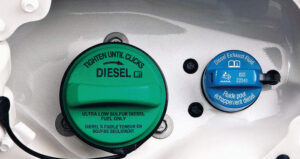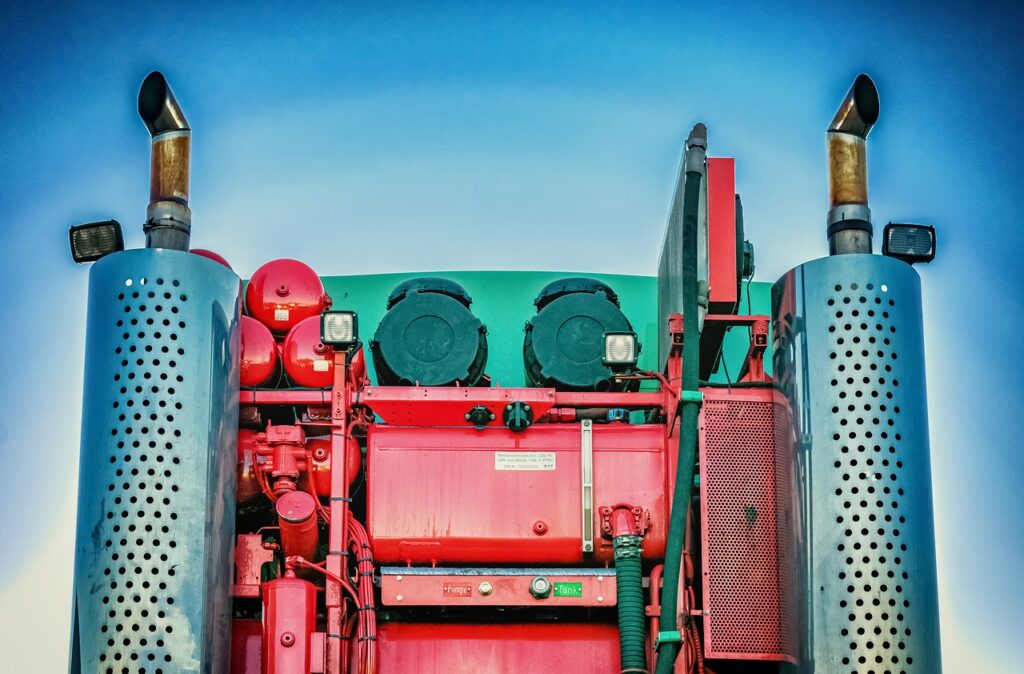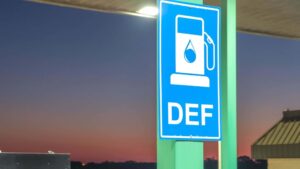Keep on trucking!
New emission standards are here, and here to stay, any diesel over 74 horsepower must meet stringent emission requirements. Today’s Tech Talk will be about what Diesel Exhaust Fluid (DEF) does to emissions. We will also touch on how much DEF a company should stock, how to handle and disperse it, and how to ensure that DEF does not compromise the new emission systems.
What is DEF?
DEF is an emission reducing chemical that is sprayed into your exhaust system and runs through the catalyst. The catalyst then turns the NOx (Nitrous Oxide), a major component of smog, into a harmless mixture of water and nitrogen. This recent technology is called Selective Catalytic Reduction or SCR. 
How much DEF to stock is a tough question for any company, but not keeping enough in stock can mean your equipment will run out and not operate. Stocking too much can mean wasted storage space. So, let’s go over how to gauge what amount to keep onsite is best for you. It is recommended for pick-ups that you purchase your DEF by the gallon, or in 2.5-gallon containers, as this is typically what is needed to fill up the DEF tank for every oil change. If you have a fleet of equipment, heavy and on the road, it is recommended that you keep a 55-gallon drum, or a 275-gallon tote filled with DEF. Deciding how much you need to stock will depend on how much you use. It might take some time to get an average, as usage may vary. Tractors that are on the road, the tank will need to be filled with DEF every third tank of fuel, but for off road, usage of DEF is typically 8-10% of fuel burned. However, this can vary depending on load and idle times. It is suggested to keep extra on hand and order more when you have about a week’s supply left. Delivery may take a few days to reach you from a vendor.
Nothing like a little soap and water!
Handling and dispersing DEF is simple, if you spill it on your hands, soap and water will wash it off. With larger spills, sand and absorbent materials are sufficient for clean-up. It is recommended to have a designated system to disperse DEF from containers. Contamination, such as oil from a funnel, can cause major damage and costly replacement. The average cost for a new catalyst is anywhere from $7,000.00- $15,000.00. You will need to purchase a DEF specific pump and hose, as a regular fuel pump and hose will contaminate the catalyst. You will also need to make sure that the DEF meets certifications, like ISO 22241, or one from the API (American Petroleum Institute).
Overall, DEF adds initial expense. However, engines that comply to DEF typically run cooler and have better fuel efficiency, meaning the system will eventually pay for itself.


